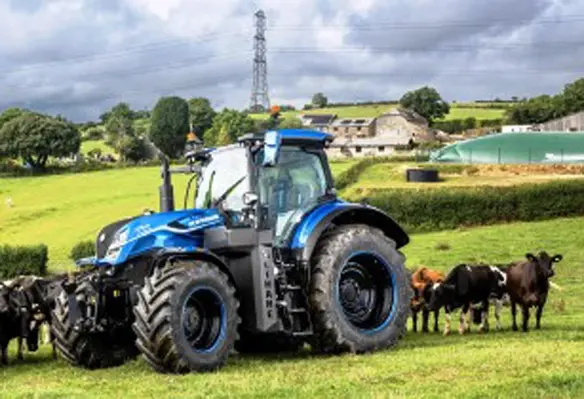CNH Industrial is expanding its alternative fuel capabilities by taking a majority stake in Bennamann, a UK-based expert in solutions to capture, repurpose and store fugitive methane emissions for energy use
In conjunction with CNH Industrial equipment, Bennamann’s infrastructure delivers a carbon negative system that fully supports a circular economy in farming
“By consolidating our share in Bennamann, we are offering our customers a full energy production, storage and distribution service,” said Derek Neilson, president agriculture at CNH Industrial. “This solution can transform farms into mini energy hubs that can satisfy their own energy needs, produce their own natural fertiliser and sell any excess gas on the open market. It also enables them to generate their own electricity. This makes us a true alternative energy enabler, able to serve myriad applications and contribute to a carbon negative future.”
Reducing emissions such as methane and CO2 from bio waste and operations is one of agriculture’s greatest environmental issues. To help farmers meet this challenge, CNH Industrial has been pioneering sustainable alternative power solutions in agriculture for more than two decades, including the world’s first tractor running on compressed natural gas – the New Holland T6.180 Methane Power. Alternative fuels and electrification can enhance a farmer’s operational flexibility, efficiency, and even profitability, while dramatically offsetting their carbon footprint.
This latest strategic investment furthers the company’s commitment to the Science Based Targets initiative by reducing CO2 emissions in agriculture. CNH Industrial’s research has found that a 120-cow farm operating shared methane capture technology can reduce the CO2 equivalent of 100 western European households – about 780 tons annually.
The partnership has allowed the two organisations to progress beyond the prototype phase, with plans to install the CNH Industrial-Bennamann solution on multiple farms over the next year. This will start with compressed fugitive methane solutions, moving to liquefied in the future.




